ROBERT AICKMAN
www.robertaickman.com
Master of the modern strange tale, novelist, critic, editor, literary agent and saviour of the British waterways, Robert Aickman (1914-1981) is best known as one of the most accomplished writers of ghost stories of the twentieth century.
BIOGRAPHY
by Rosalie Parker and R.B. Russell, Tartarus Press
Robert Aickman was the author of over fifty strange stories, published mainly in eight collections between 1951-1985 (see Bibliography for more information). Although he enjoyed reading traditional ghostly tales, Aickman wrote his own stories on the premise that this kind of supernatural fiction was out of date. So far as he was concerned, a genre about people ‘returned from the dead’ had been ‘superseded’. His brand of uneasy, surreal modern fiction has subsequently come to be known as ‘Aickmanesque’. His stories are about phenomena for which there is often either a supernatural or a psychological explanation, although neither quite suffices on its own.
Aickman was something of an authority on supernatural fiction. Between 1964 and 1972 he edited eight volumes of the Fontana Book of Great Ghost Stories: he wrote that there are two good reasons to read them:
‘The first … is the need we all must feel for some degree of reconciliation with death. The second is vaguer but more continuously present in the consciousness of most of us: the need to escape, at least occasionally, from a mechanistic world, ever more definable, ever more predictable, and, therefore, ever more unsatisfying and frustrating. . . .’
Writing strange fiction was in Aickman’s blood; he was the grandson of Richard Marsh, author of The Beetle (1897), a classic Victorian horror novel which, in its day, was more popular than Bram Stoker’s Dracula. Aickman wrote of The Beetle that ‘My grandfather embarked upon no foolish explanations, which in any case only render down truth for the relief of the timid.’ This was a dictum Aickman embraced wholeheartedly.
Robert Aickman’s first short story collection, We Are For The Dark (1951), was a collaboration with Elizabeth Jane Howard. These are not fledgling experiments on the way towards the ‘Aickmanesque’ tale; stories such as Aickman’s ‘The Trains’, and Howard’s ‘Three Miles Up’ and ‘Perfect Love’ exhibit all the unsettling, bizarre and surreal elements that we associate with Aickman’s best work. Aickman and Howard were inspired to write supernatural fiction by their friendship with L.T.C. Rolt, who had written a rather more traditional ghost story collection Sleep No More (1948). Aickman and Howard, who were lovers, must have discussed together and worked on the idea of moving the ghost story into the second half of the twentieth century. They incorporated into their fiction elements of psychoanalysis, dreams, nightmares, eroticism and surrealism. Despite the fact that her own writing subsequently moved away from the genre, it seems clear that Elizabeth Jane Howard should be given credit for her role in the creation of the ‘Aickmanesque’ story.
Aickman lived in London for most of his life, and enjoyed a small private income. His two volumes of autobiography The Attempted Rescue (1966) and The River Runs Uphill (1986) give fascinating, if partial, glimpses into his world. The Attempted Rescue charts his childhood and adolescence: he was the son of an extremely eccentric father. The River Runs Uphill is largely an account of the first few years of the Inland Waterways Association, the campaigning organisation founded by Aickman, his wife Ray, and Angela and L.T.C. Rolt in 1946. It is a story of some adventure and romance, with Aickman casting himself in the role of knight errant, spending the greater part of twenty years fighting for the cause, often battling divergent interests and dissenting personalities in his own organisation. We are presented with a more informed view of the author as a formidable campaigner and leader.
Aickman, a man of many talents, was also a literature, film and opera critic, and at one point set up a literary agency.
Although many of Aickman’s stories operate within the author’s familiar territory of the unreliable, uncomfortable male narrator, it is notable that some of his best stories, such as ‘The Inner Room’, ‘The School Friend’, and ‘Pages from a Young Girl’s Journal’, have female narrators or protagonists. As would be expected from such a cultured man, Aickman’s short fiction has a broad frame of reference, and he is adept at writing stories in widely varying social settings, times, places and perspectives. His stories take place in milieus as dissimilar as Finland in ‘The Houses of the Russians’; Wolverhampton in ‘The Swords’; the decaying splendour of Venice in ‘Never Visit Venice’; and the British Houses of Parliament in ‘My Poor Friend’.
There is much that is modern about Aickman’s fiction, but he disliked many things about the twentieth century. He preferred progress, if it had to happen at all, to be achieved on a more human, less technological scale. He adored the canals that were the life-blood of the early industrial revolution, and spent many years helping to ensure that the British canal system survived for future generations to enjoy. He loved the opera, ballet, film and the theatre – he had seen all the great actors of his age - and became involved in the administration of the performing arts. He was dismayed by the post-War decline of the aristocracy and a more feudal and hierarchical way of life. He yearned for an idealised version of the Edwardian era, with its privileged, hereditary elite. All of these things were important influences on Aickman’s writing.
Perhaps as a result of his odd mix of the modern and the archaic, Aickman’s books have never been bestsellers, but towards the end of his life he received some recognition. In 1974 ‘Pages from a Young Girl’s Journal’ won the first World Fantasy Award, and he was also a nominee for a life achievement award. Aickman was invited over to Providence, New England, by the World Fantasy Committee, but this minor triumph soon descended into the absurd. In applying for a visa, Aickman, perhaps thinking of Oscar Wilde’s visit to America almost a hundred years earlier, stated that he would be undertaking a U.S. lecture tour. He was refused entry, and, embarrassed at having told friends the same story, was forced to lay low in his London flat for the duration of the convention. In 1981 Aickman was also awarded the British Fantasy Award for his story ‘The Stains’.
People have told each other ghost stories in all times and cultures. They have become an important part of our literary legacy. With the strange tales of Robert Aickman, the ghost story has been both subverted and updated in such a way that it should resonate long into the future. With both Tartarus Press, Faber & Faber, and Valancourt Books keeping Aickman in print, his own legacy is assured.
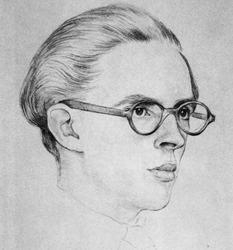
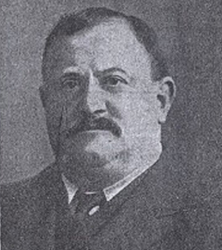
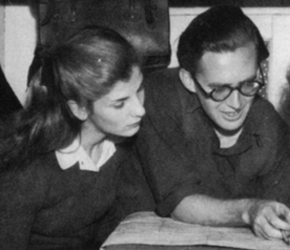
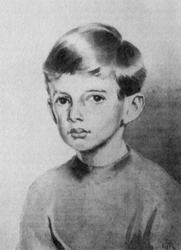
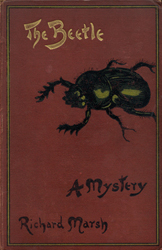
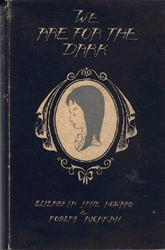
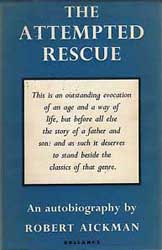
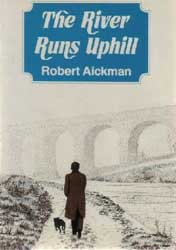
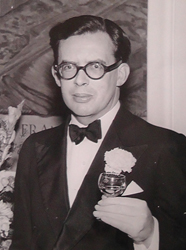
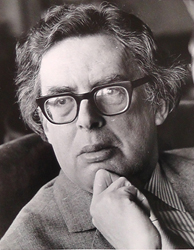
Website Copyright Tartarus Press, 2024.
contact: ray@tartaruspress.com
Robert Aickman's writings are in copyright, and his Estate is represented by Artellus Ltd